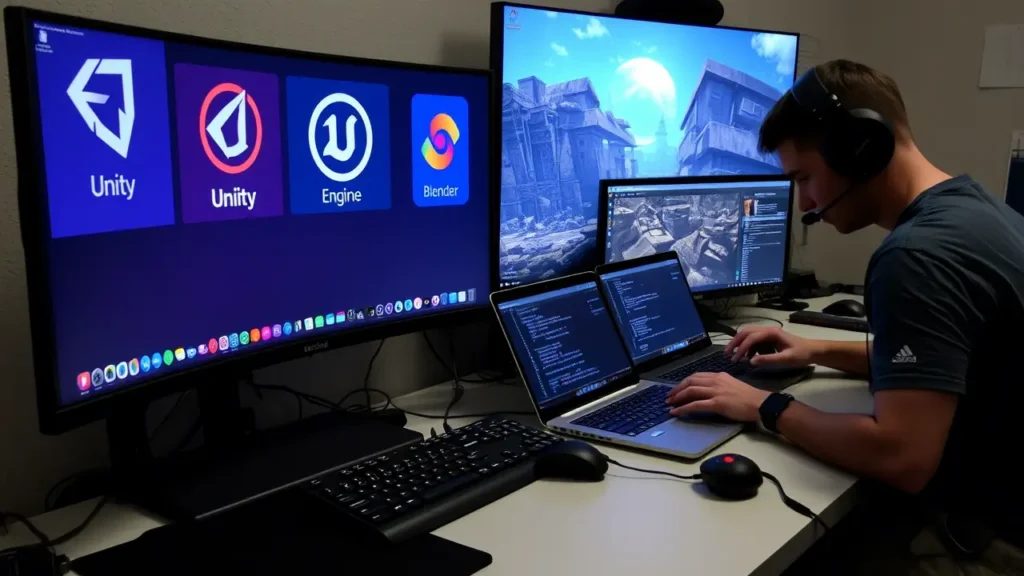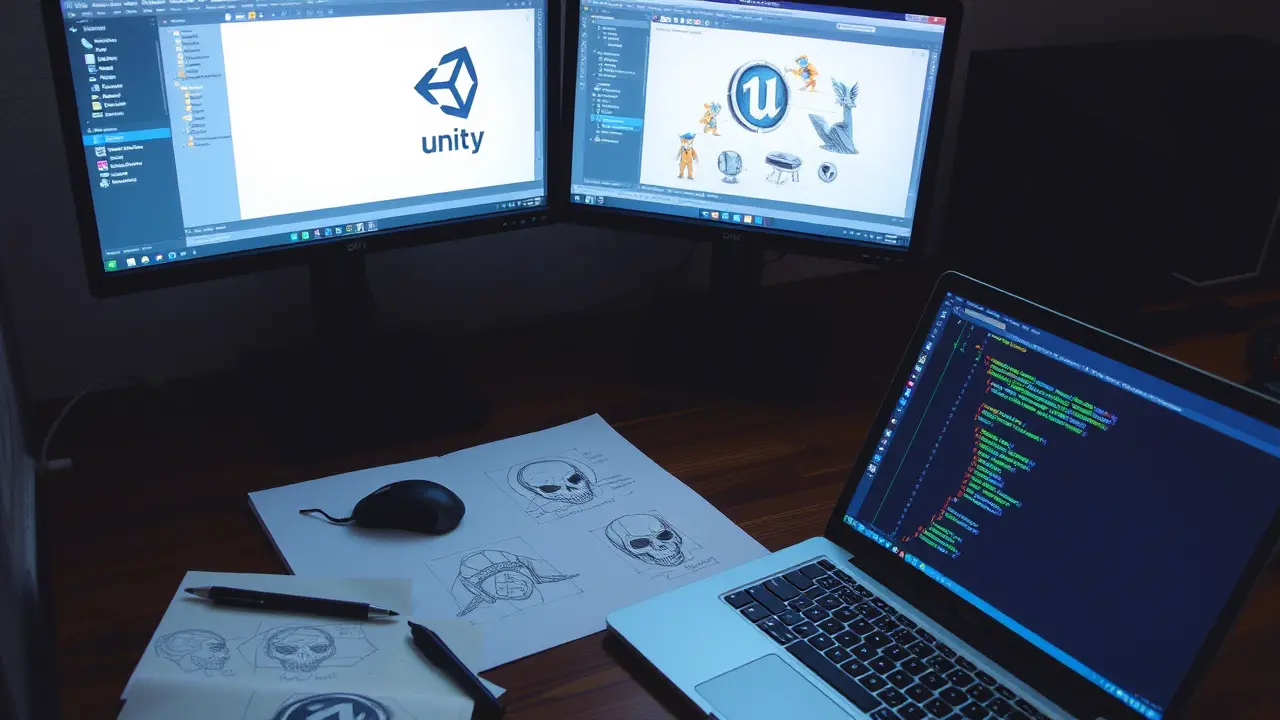
Programming forms the backbone of every video game, from indie mobile apps to AAA blockbusters. Whether you’re just starting your journey to become a game developer or looking to expand your technical skillset, mastering the right programming languages is crucial. This comprehensive guide explores the most in-demand languages, their specific use cases, and how they fit into modern game development workflows across different platforms and genres.
C++: The Undisputed King of AAA Games
When I talk with developers I meet during my travels to gaming conferences, C++ constantly comes up in conversation. This language has dominated the industry for decades for a simple reason: performance.
C++ offers total control over memory and system resources. Studios like Epic Games or id Software rely on it to create highly optimized graphics engines. Unreal Engine itself is written in C++, allowing developers to push visual and technical boundaries.
Learning C++ requires patience and discipline. Manual memory management can seem intimidating at first, but this complexity provides a deep understanding of how machines work. For games requiring maximum performance, like competitive FPS titles or complex simulations, C++ remains irreplaceable.
C#: The Perfect Balance with Unity
C# has revolutionized indie development thanks to Unity. This language combines object-oriented power with syntax that is more accessible than C++. Microsoft designed C# to be productive while still delivering good performance.
Unity uses C# as its main scripting language. This combination has allowed thousands of independent developers to create impressive games without a massive technical team. Successes like Hollow Knight or Cuphead demonstrate the potential of this pairing.
The .NET ecosystem also brings considerable advantages. The debugging tools are excellent, the documentation is rich, and the community is active. For getting started with game development, C# with Unity is often the smartest choice.
Python: Prototyping and Development Tools
Python often surprises people in the gaming context. Although it is not suited to core game loops due to its execution speed, Python excels in other crucial areas.
Many studios use Python to build internal tools. Level editing, build automation, game data analysis, or procedural content generation all benefit from Python’s simplicity. Blizzard Entertainment uses Python extensively for its development pipelines.
Rapid prototyping is another major strength. Testing gameplay mechanics, simulating economic systems, or validating concepts becomes very accessible with Python. This fast development cycle enables efficient iteration before implementing features in a production language.
JavaScript: The Rise of Web Gaming
Web-based game development has exploded in recent years. JavaScript, along with frameworks like Phaser or Three.js, makes it possible to create interactive experiences directly in the browser.
WebGL brings advanced graphics capabilities to the web. Games like Skribbl.io or Agar.io have proven that simple, well-executed concepts can reach millions of players without requiring installation.
Hybrid mobile development with technologies like React Native or Ionic also uses JavaScript. This approach allows targeting multiple platforms with a shared codebase, drastically reducing development costs.
Java: Versatility and a Robust Ecosystem
Java remains relevant in several gaming niches. Minecraft, one of the best-selling games in the world, is entirely developed in Java. This success shows that performance is not always the limiting factor.
The Java ecosystem brings stability and maturity. Frameworks like LibGDX offer effective cross-platform solutions. Native Android development also uses Java, giving access to the world’s largest mobile market.
The JVM (Java Virtual Machine) guarantees exceptional compatibility across systems. This portability simplifies multi-platform distribution, which is a major advantage for independent developers.
Rust: The Future of Safe Performance
Rust is rapidly gaining ground in the gaming industry. This modern language combines the performance of C++ with memory safety guaranteed by its compiler. Mozilla designed Rust to eliminate segmentation faults and memory leaks.
Engines like Bevy or games like Veloren are exploring Rust’s possibilities. The learning curve is still steep, but the long-term benefits are promising. Rust could well represent the natural evolution of C++ for the next generation of developers.
Choosing According to Your Goals
The choice of language depends largely on your goals and constraints. For a first game, C# with Unity offers the best learning-to-results ratio. Projects requiring maximum performance will lean toward C++. Web or mobile development will favor JavaScript.
The most important thing is to master the fundamental concepts rather than superficially dabbling in many languages. A deep understanding of one language is worth more than a fragmented knowledge of several.
Passion and perseverance matter more than your initial choice. Many talented developers started with “non-optimal” languages before evolving according to their needs.
Conclusion
Mastering multiple programming languages greatly enriches your profile as a developer. Each language brings its unique perspective on problem-solving and software architecture.
Once you have chosen your primary language, consider building a solid portfolio to showcase your skills. A well-structured game developer portfolio is your best asset for securing opportunities in this competitive industry.

AULA F99 Wireless Mechanical Gaming Keyboard
AULA F99 Wireless Mechanical Keyboard,Tri-Mode BT5.0/2.4GHz/USB-C Hot Swappable Custom Keyboard,Pre-lubed Linear Switches,RGB Backlit Computer Gaming Keyboards for PC/Tablet/PS/Xbox
Make Your First 2D Game in Unity
Want to build your first game but don’t know where to start? This beginner-friendly guide shows you how to create SampleGame2D — a fun Flappy Bird–style project — step by step in Unity. Inside you’ll learn:

Amazon Fire 7 Kids tablet
Amazon Fire 7 Kids tablet, ages 3-7. Top-selling 7\" kids tablet on Amazon. Includes ad-free and exclusive content, easy parental controls, 10-hr battery, 16 GB, Blue

Scotch Thermal Laminating Pouches
Scotch Thermal Laminating Pouches, for Use with Thermal Laminators, 8.9 x 11.4 Inches, Letter Size Sheets, 100-Pack

